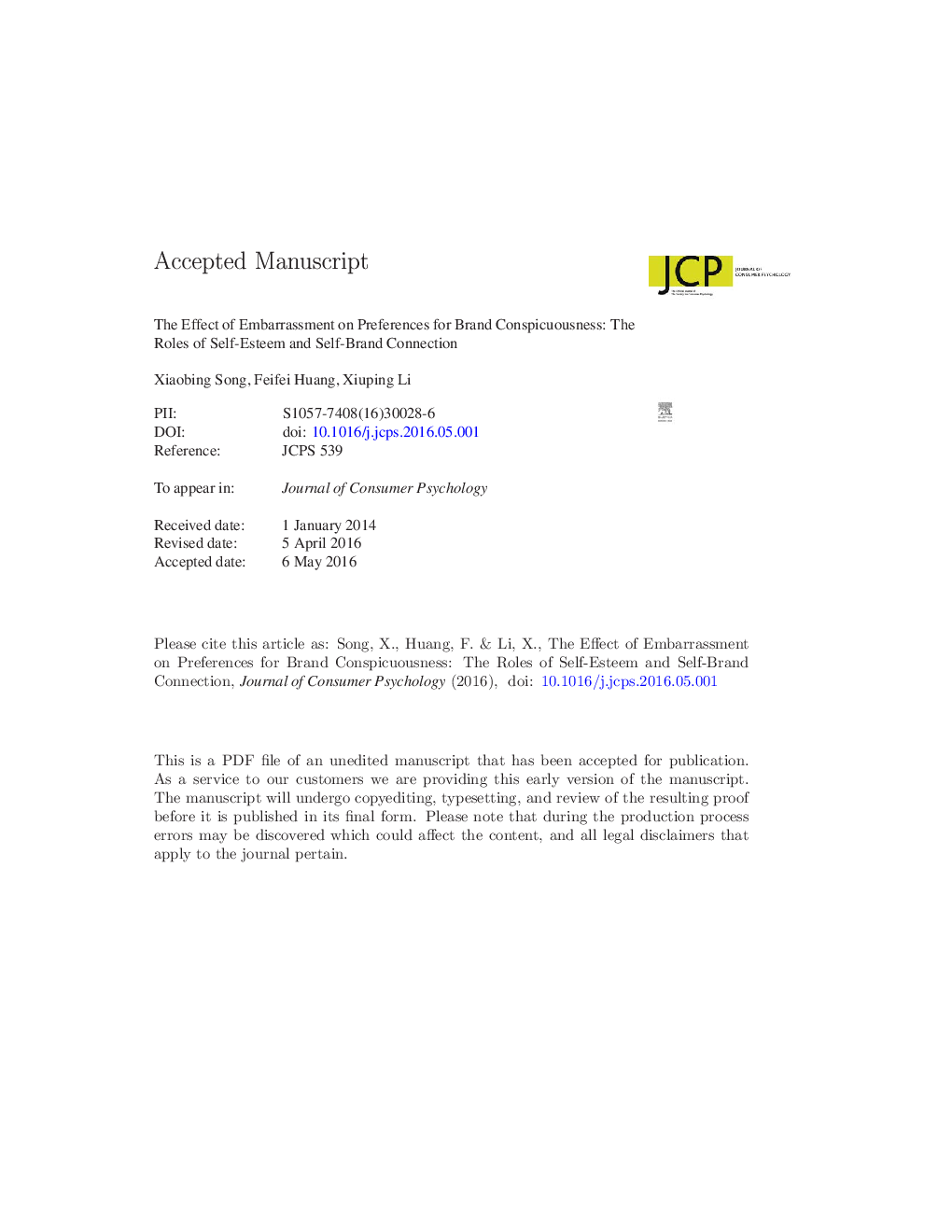| Article ID | Journal | Published Year | Pages | File Type |
|---|---|---|---|---|
| 5034273 | Journal of Consumer Psychology | 2017 | 54 Pages |
Abstract
Three studies were conducted to examine how embarrassment influences consumer preferences for brand conspicuousness. We predict that consumers with different levels of self-esteem will have distinct coping strategies when they feel embarrassed, resulting in differences in their preference changes related to brand conspicuousness. The results show that when feeling embarrassed, consumers with low self-esteem (high self-esteem) are more likely to have increased motivation to avoid social attention to the self in general (to repair their self-image). Thus, relatively speaking, consumers with low self-esteem (high self-esteem) prefer a more conspicuous product design over a less conspicuous one to a lesser (greater) extent when they are embarrassed than when they are not embarrassed. In addition, we demonstrate that the interaction between self-esteem and embarrassment is more likely when consumers form a strong connection with the brand.
Related Topics
Social Sciences and Humanities
Business, Management and Accounting
Marketing
Authors
Xiaobing Song, Feifei Huang, Xiuping Li,
